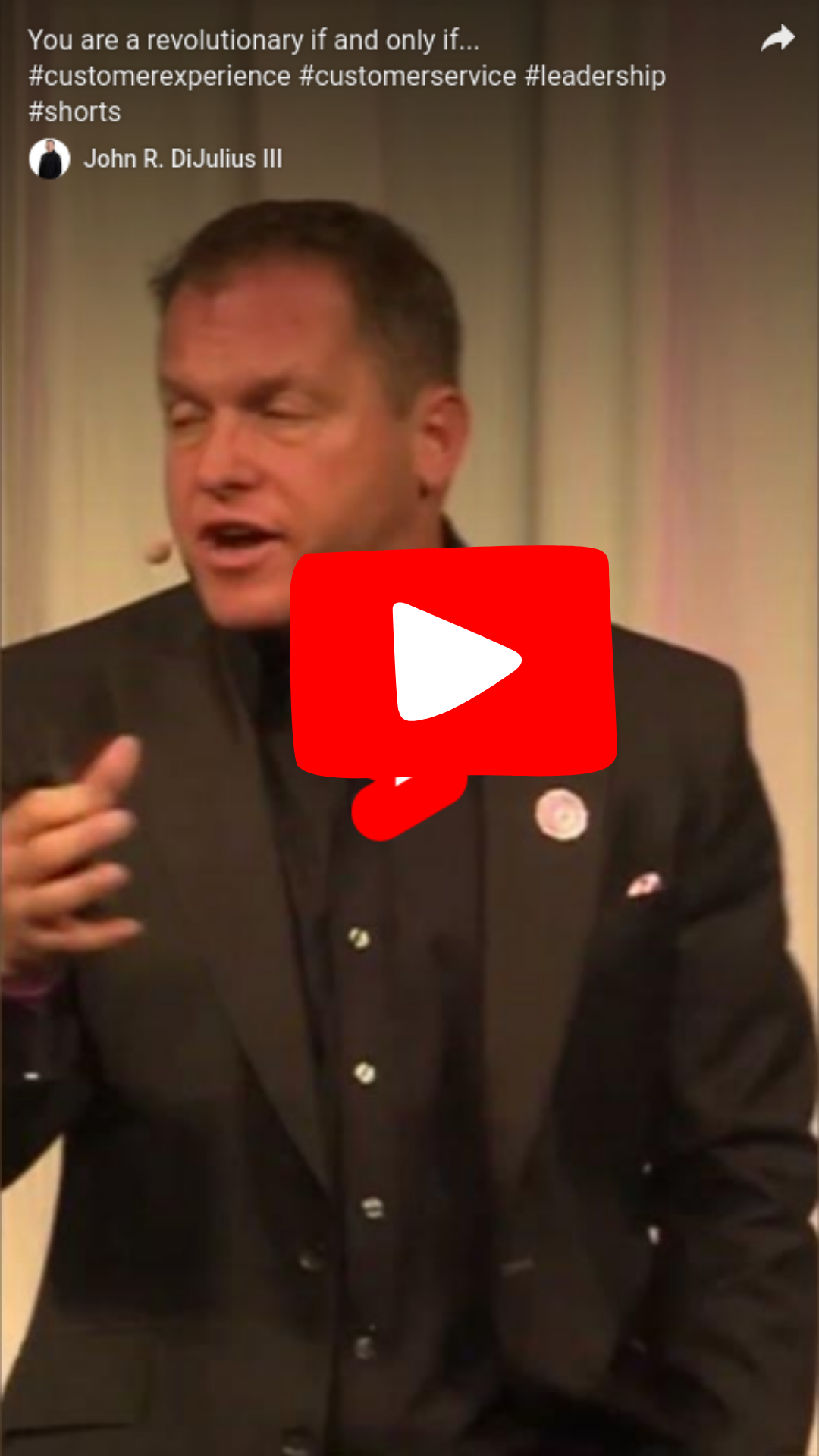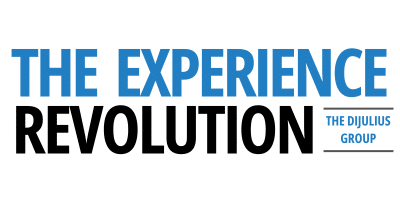Why It is Good to Have Outspoken Employees
Outspoken Employees
Outspoken employees can be considered negative, especially when employee feedback is given outside of an employee survey. Whenever I conduct a leadership workshop around our latest book The Employee Experience Revolution, one consistent question that comes up is how to handle negative employees. I have heard other “experts” answer this quickly by saying, “Hire slow, fire fast.” While it is critical to an organization’s culture not to allow team members with chronic bad attitudes to remain, there is a difference between an employee who doesn’t want to be there and an employee who is questioning the way things are being done. As a leader, you need to recognize the difference.
Employee with an Issue
Every leader has enough drama to deal with on a day-to-day basis. The last thing we want is to have an employee come to us with an issue. It is human nature to not welcome the feedback, to broad stroke that employee as negative and never happy. However, we need to recognize the value these employees are potentially providing us. We pay tens of thousands of dollars annually to survey our customers. Yet, we roll our eyes when our most valuable asset wants to tell us what is not working. If you have created an environment where everyone agrees with you and no one feels comfortable being totally honest, questioning the way things are being done, and challenging your thinking, your organization is headed to being the next Blockbuster.
Encourage Employee Feedback
First, these team members care enough about the company’s success, their jobs, and the customer to speak up. We need those team members. They need to feel confident enough to share their feedback and feel that we welcome and encourage them. We do quarterly employee surveys if you are reading this and think we have this covered. That is one element, however, I am talking about having a culture that encourages employees at any time to address things on their mind that they think can improve the business.
Divine Discontent
A valuable characteristic in some people (usually future entrepreneurs) is divine discontent. Divine discontent refers to a state of continuous striving for improvement and excellence driven by an inherent dissatisfaction with the status quo. It implies a constructive form of discontent that motivates individuals or organizations to push boundaries, innovate, and seek higher standards.
You want a team of employees, especially leaders with divine discontent. Here are the potential results of Divine Discontent:
Positive Dissatisfaction:
Unlike negative dissatisfaction, divine discontent inspires action and growth rather than frustration or complacency.
Continuous Improvement:
It fosters a mindset of always seeking better solutions, services, or personal growth.
Innovation and Progress:
Many businesses and leaders embrace divine discontent to stay ahead in their industries, using it as a driving force for innovation.
Customer-Centric Focus:
Companies like Amazon have used the term to describe their approach to customer service, striving to anticipate needs and exceed expectations.
Divine Discontent was Jeff Bezos and Amazon’s Superpower
Jeff Bezos has famously referred to divine discontent when describing Amazon’s customer obsession, emphasizing that customers will always want something better, and businesses must continually evolve to meet those expectations.
Total Transparency
Arnie Malham, author, speaker, and entrepreneur, has founded, built and sold many successful businesses. Working with his companies over the years, I can honestly say I haven’t come across too many organizations that had a stronger employee culture.
Arnie allowed all his employees to publicly post their satisfaction scores and share feedback. All his employees can see what their co-workers are posting and how the company is doing regarding overall satisfaction. Each quarter they are asked to fill out a survey stating their level of satisfaction (1-5) and share all comments they have. All his employees can see this. They can see what his other team members are saying. I had never heard of such transparency! I asked Arnie about this, and he said, “Most people say I need to have my head examined for doing this. However, we like the pressure of knowing that if we don’t take care of our employees or don’t react when something goes wrong, it will be made public.”
I had seen and read the comments and had interviewed several of his employees, and they say this is one of the reasons why they loved working for Arnie. His companies were forward moving, robust company largely because of Arnie’s appetite for critical feedback. While most companies adopt the “head in the sand” approach to criticism, Arnie looked for it. By asking his employees what they can do better, he puts his brands in a better position to get better!
Celebrate Employee Feedback
Divine discontent is the driving force behind progress and innovation, encouraging a relentless pursuit of excellence while maintaining a positive, forward-thinking attitude. We need people who tell us what they and others are thinking. We need to make them feel comfortable about sharing, and it is not their job to worry about how they come across to us. I have leaders today (one that has equity in one of my companies); when they were employees, they were constantly challenging us, asking “why” and “Why hasn’t this been fixed yet?” “Why are we keeping employees who do not meet our standards?” It is a good thing. It is a great thing. We need to encourage it and not temper it in any way. I want unfiltered feedback. Leaders need to have tougher skin and recognize how awesome their team members care so much to speak up.
Detect Problems Early On
Employees who complain can actually be a valuable asset to an organization when their concerns are addressed constructively. They help you detect problems early on. Complaints often highlight underlying organizational issues, such as inefficiencies, workplace dissatisfaction, or operational challenges. Addressing these concerns early can prevent them from escalating into larger problems that could impact morale, productivity, or even customer satisfaction.
Engaged Employees Care
Employees who complain usually care about their work environment and want improvements. Their feedback can indicate a sense of ownership and investment in the company’s success. Conversely, silence might indicate disengagement or apathy, which can be more detrimental in the long run.
Opportunities for Innovation
Complaints often reveal inefficiencies or pain points that, when addressed, can lead to innovation and process improvements. Employees on the front lines have firsthand experience with systems and processes, making their feedback valuable for identifying areas of improvement.
Improved Workplace Culture
Encouraging open dialogue and listening to complaints fosters a culture of transparency and psychological safety. When employees feel heard and valued, they are more likely to stay engaged and contribute positively to the workplace.
Retention and Employee Satisfaction
Addressing employee complaints shows that management values their input, leading to increased job satisfaction and retention rates. Employees who feel their concerns are taken seriously are more likely to stay with the company rather than seek opportunities elsewhere.
Customer Insights
Employee complaints, especially from frontline workers, can provide valuable insights into customer pain points, service issues, and potential areas for improvement. Acting on employee feedback can enhance customer satisfaction and loyalty.
Leadership Development
Handling employee complaints effectively can help managers develop their leadership and problem-solving skills. Leaders who address concerns constructively demonstrate empathy and emotional intelligence, strengthening team dynamics.
Encourages Continuous Improvement
Organizations that actively seek and address complaints create a culture of continuous improvement and adaptability.
It helps companies stay competitive and responsive to changing workforce and market demands.
How to Leverage Employee Complaints Constructively
-
Encourage Open Communication:
- Foster an environment where employees feel safe to speak up without fear of retaliation.
-
Act on Feedback:
- Take complaints seriously and implement solutions where necessary.
-
Recognize Constructive Criticism:
- Differentiate between complaining for the sake of it and complaints that lead to meaningful change.
-
Provide Channels for Feedback:
- Offer structured opportunities like anonymous surveys or regular check-ins.
In summary, employees who complain provide an opportunity for growth, reflection, and improvement within an organization. When handled correctly, their feedback can lead to a stronger, more engaged workforce and a better-functioning company.
Get Ready For The 2025 Livestream Workshops!
March 10: Create Non-negotiable Standards
June 9: Become a Zero-Risk Organization
September 8: Create a Recruiting Experience
December 1: Create an Onboarding Experience
Are you ready to revolutionize how your organization delivers customer and employee experiences?
Join John DiJulius and Dave Murray of The DiJulius Group for the Experience Revolution Livestream Workshop Series.
This four-part series dives into essential strategies for creating a zero-risk organization, improving recruiting and onboarding experiences, and establishing non-negotiable service standards.
Reserve your spot today:
- Attend any workshop for $249 each
- Unlock the entire series, 4 workshops (plus 2 bonus replays!) for $749 *BEST VALUE*
Register Now and Save Your Spot
Now Enrolling!
Become a Certified Experience Executive in 2025

Transforming Leaders – Transforming Experiences – Transforming Cultures
Our Experience Academy courses have been designed to certify people for a new level of leadership, benefiting their career and your organization.
- The Customer Experience Executive Academy enables you to assess an organization’s current state of service and work to build systems to consistently deliver world-class experiences.
- The Employee Experience Executive Academy enables you to assess your current culture and build systems to hire, onboard, train and retain the best employees.
Learn more about the CXEAcademy
Learn more about the EXEAcademy
Schedule a call to discuss registration
Become a More Confident Speaker, in Just 2 Days!
Join our June 10, 11 workshop in Cleveland, OH, led by John DiJulius and Dave Murray.
During this two-day workshop, you’ll learn to:
- Present with clarity and confidence
- Deliver messages that inspire action
- Connect with your audience every time
Learn more about Presentation Skills Workshop
Looking for a Keynote Speaker?
Bring John in to your team or event!
Take advantage of special savings when John is in your area. See schedule below, or contact Claudia for details or to be alerted when John is in your area.





